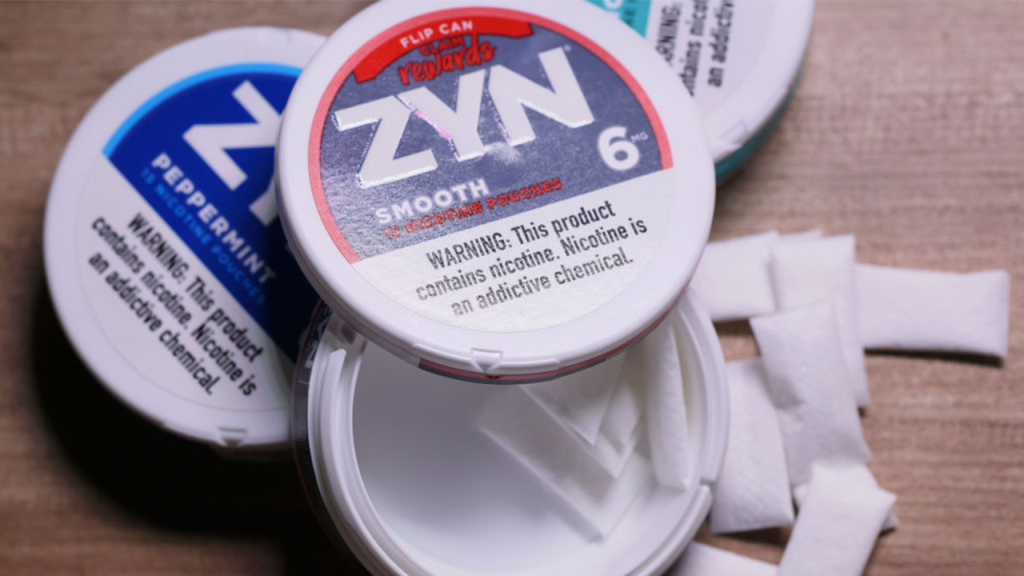In a notable move, New York State lawmakers are proposing legislation to ban the sale of flavored nicotine pouches, which they claim are “highly addictive.” Despite support from the U.S. Food and Drug Administration (FDA), which acknowledges that these products can assist smokers in quitting traditional cigarettes, State Senator Brad Hoylman-Sigal has expressed concerns about their appeal to youth. The proposed ban, which comes alongside a similar bill from Assemblywoman Linda Rosenthal, aims to restrict flavored options that could attract younger users.
| Article Subheadings |
|---|
| 1) Background on Flavored Nicotine Pouches |
| 2) Legislative Responses in New York |
| 3) FDA’s Stance on Nicotine Pouches |
| 4) Concerns Regarding Youth Usage |
| 5) The Industry’s Perspective |
Background on Flavored Nicotine Pouches
Flavored nicotine pouches are tobacco-free products that deliver nicotine through the mouth without requiring combustion or inhalation. These pouches are appealing for their variety of flavors, which range from menthol to coffee, making them more attractive to users compared to traditional tobacco products. The recent popularity of these products has raised public health concerns, particularly regarding potential addiction among younger individuals. Although they do not contain tobacco leaf, proponents argue that they serve as a less harmful alternative to smoking.
Legislative Responses in New York
The legislation proposed by Senator Brad Hoylman-Sigal is part of a broader initiative to limit access to flavored nicotine products in New York. Alongside him, Assemblywoman Linda Rosenthal has introduced a companion bill focused on banning flavored nicotine pouches in the New York State Assembly. The push for these bills stems from a desire to protect minors from nicotine addiction and follows a trend where flavored e-cigarettes have already been restricted in the state. Both legislators have emphasized the need for collective action in protecting public health.
FDA’s Stance on Nicotine Pouches
The FDA’s recent approval of flavored nicotine pouches from the Philip Morris International brand Zyn exemplifies the regulatory complexities surrounding these products. The agency supports their use as a means to potentially assist smokers in transitioning away from traditional cigarettes, which are well-documented for their health risks, including cancer. This marks a significant milestone, as it is the first time the FDA has authorized the sale of nicotine pouches, making them an official part of the regulated nicotine product landscape.
Concerns Regarding Youth Usage
Despite federal data indicating that less than 2% of high school and middle school students use nicotine pouches, Senator Hoylman-Sigal cites evidence of increasing use and a growing youth appeal. This observation fuels the urgency for regulation, suggesting that flavored nicotine products could unintentionally normalize nicotine consumption among minors. Hoylman-Sigal articulates, “With our bill, we’re trying to stop young people from getting hooked on favored Zyn products.” This reinforces the idea that the proposed legislation is primarily aimed at reducing youth access and usage of flavored products.
The Industry’s Perspective
From the industry’s standpoint, there are significant concerns regarding the implications of such bans on public health initiatives. Brian Erkilla, director of regulatory science at Philip Morris International, argues that banning flavored pouches could lead to adverse consequences, like increasing smoking rates among those seeking alternatives. Erkilla maintains that the goal should be to provide adult smokers with a range of options rather than limiting their choices, highlighting the tension between public health advocacy and market freedom in the tobacco industry.
| No. | Key Points |
|---|---|
| 1 | New York lawmakers propose a ban on flavored nicotine pouches amid growing health concerns. |
| 2 | Senator Brad Hoylman-Sigal and Assemblywoman Linda Rosenthal introduce legislation to restrict these products. |
| 3 | The FDA has approved flavored nicotine pouches, marking a regulatory step for these products. |
| 4 | Concerns are raised regarding the potential youth appeal of flavored nicotine products. |
| 5 | The tobacco industry warns that a ban could push smokers back to traditional cigarettes. |
Summary
The proposal to ban flavored nicotine pouches in New York represents a significant intersection of public health policy and market regulation. Although these products offer a smoking alternative, the concerns regarding youth accessibility and potential addiction cannot be overlooked. As debates continue among lawmakers, public health advocates, and the tobacco industry, the outcome of this legislation could set precedents for tobacco regulation across the nation.
Frequently Asked Questions
Question: What are flavored nicotine pouches?
Flavored nicotine pouches are tobacco-free products that provide a means to consume nicotine without smoking or chewing tobacco. They dissolve in the mouth and come in various flavors, appealing to both adult users and potentially younger audiences.
Question: Why are lawmakers concerned about flavored nicotine pouches?
Lawmakers are concerned that flavored nicotine products may attract younger users, leading to potential nicotine addiction early in life. The proposed ban aims to prevent minors from accessing enticing flavor options.
Question: What is the FDA’s position on flavored nicotine pouches?
The FDA supports flavored nicotine pouches as a less harmful alternative to traditional smoking. It has approved certain flavors for sale, believing they can assist smokers in quitting cigarettes.


